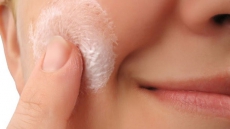Sunbeds with a UVB component similar to solar summer sunshine may provide an effective alternate vitamin D source during winter months, according to a new Canadian study just published in the journal Dermato Endocrinology.
People who use tanning salons, specifically sunbeds that have UVB during the winter reach physiological blood levels (>100 nmol/L) of vitamin D, the study reported. It found
that participants who used typical sunbeds emitting UVB rays in the range equivalent to outdoor summer sunshine increased their vitamin D blood levels on average by 42 nmol/L. This was achieved using standard tanning exposure schedules on salon sunbeds.
“Sunbeds enable exposure to nearly 100% of skin in a controlled manner which amplifies their effectiveness for vitamin D production,” said Dr. Samantha Kimball, lead author and research director at Pure North S’Energy Foundation in Calgary, AB. “We found that you can effectively raise your vitamin D levels into the desired range without burning and following Health Canada’s recommendations. But there are risks to any type of UV exposure, whether from the sun or sunbed.”
Ultraviolet-B (UVB) sun exposure in summer converts cholesterol in your skin to pre-vitamin D. Wintertime sun exposure at northern latitudes in Canada (above 44⁰N) does not contain sufficient UVB to stimulate vitamin D synthesis because of the angle of the sun. Most evolutionary biologists believe skin colour evolution occurred when fairer-skinned cultures migrated further from the equator so the skin would more efficiently produce vitamin D in light-deprived parts of the world.
For most Canadians vitamin D levels drop in October and continue to do so through the winter, and then they require vitamin D supplements or artificial UVB exposure to maintain target levels. Kimball and other vitamin D researchers now believe low vitamin Dlevels in winter leave you more susceptible to colds, flu and serious diseases such as osteoporosis, diabetes, multiple sclerosis many forms of cancer and heart disease.
In Canada, 38% of people or approximately 14 million Canadians have vitamin D levels below 50 nmol/L the level recommended by Health Canada. This increases to 40% in winter. More than 48 vitamin D scientistsrecommend that you reach a vitamin D blood level of between 100-150 nmol/L for optimal health.






